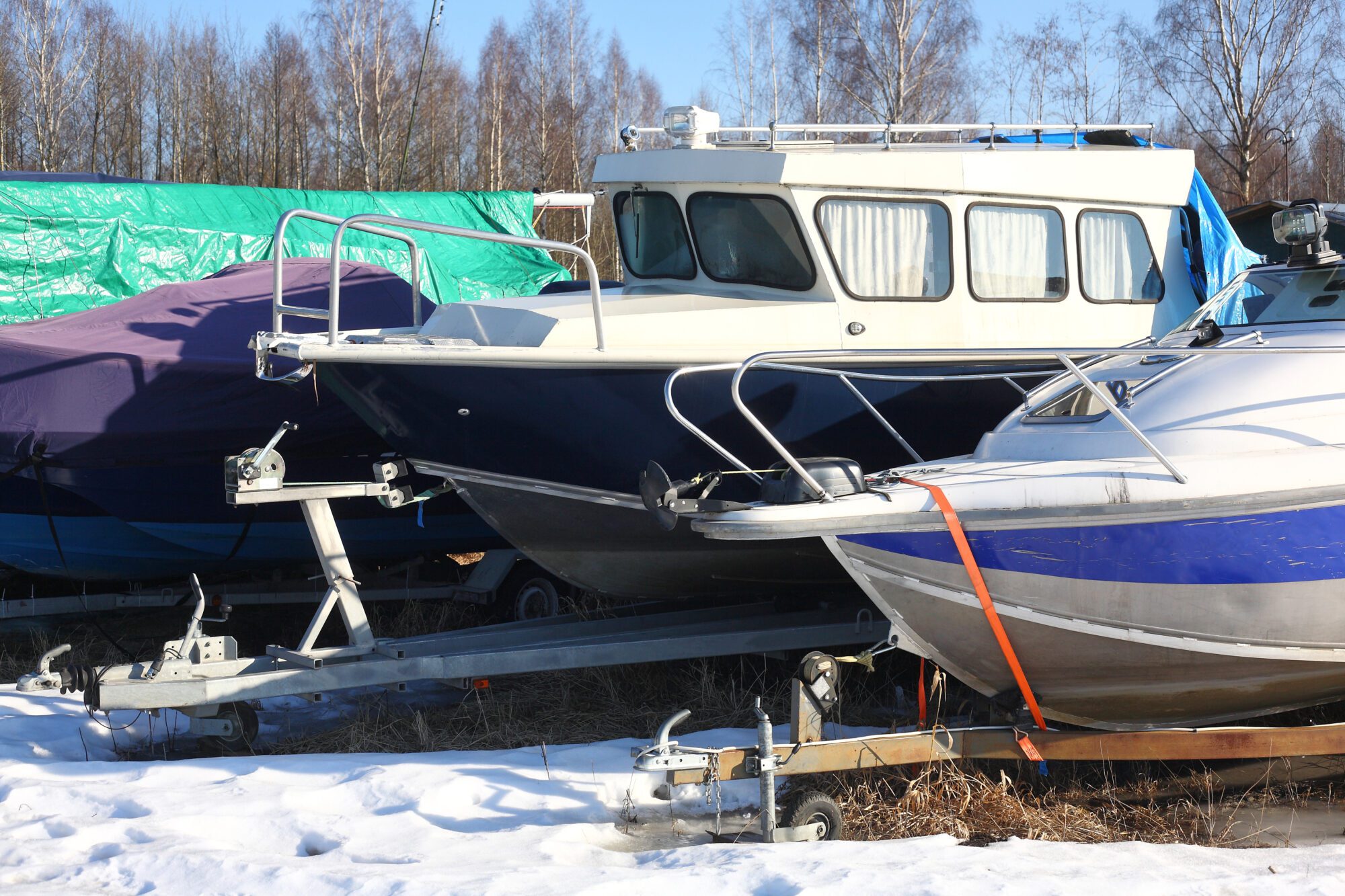Boat winterizing is never fun. Summer has come to an end and cooler temps are ahead. Sadly, that means your fun on the water is over and it is time to prepare your boat for winter storage. The only thing that would be worse would be getting to next spring and finding out that your boat winterization efforts weren’t properly executed and your fun on the water will continue its hiatus until your boat is fixed. Don’t worry! Following these helpful tips for winterizing your boat will ensure an easier, stress free launch come spring.

Unpacking
Remove your valuables from the interior of the boat and store in a safe place. Empty all perishable items from boat. It’s critical to clean out your fridge, freezer, and cabinets too. Anything that may freeze and break should be removed from the boat. Pull out your fire extinguishers so they can be inspected over the winter.
Cleaning & Storage
Give the boat a quick clean and wipe down and dry thoroughly. Store away all large boat items in their proper storage compartments so they’re easier to find next year. Life jackets, bumpers, tow ropes, skis, anchors, water toys, etc. can all be safely stored in the boat for the winter.
Air It Out
Once the boat is cleaned, take preventative measures to avoid mold and mildew building. Remember to leave the interior doors and lockers open so air can circulate. Air out the cushions and pillows. Consider placing moisture absorbing crystals through your boat to help reduce the humidity. Depending on where your boat will be stored for the winter months, it might be a good idea to toss some rodent deterrent in hull of boat to prevent any unwanted critters who may be looking for a warm place to make home.
Engine Stabilization
Without an engine, your boat can’t run! It is critical to care for your engine now, so it remains protected during the winter. For inboard engines: an oil change is key, as is flushing the engine with non-toxic antifreeze. This will prevent residual water from freezing and cracking the block. For outboard engines: Start by topping off your tanks (not more than 7/8 full to allow for expansion in the spring). Treat your fuel tank with fuel stabilizer, flush the engine with fresh water, and lightly lubricate the exterior.
Disconnect Battery
Clean and disconnect the batteries. Some boat owners remove the batteries so they can charge them at home over the winter. Others make sure the batteries are fully charged before haul-out and leave then in the boat.
Cover and Store
Storing your boat in dry storage is always the best option however, it can be costly. If your boat is going to be braving the elements during the colder months, covering your boat to keep the weather off is a necessity. Whether you cover with a canvas cover, shrink wrap your boat, store your boat under a shelter or do nothing at all, make sure you store the boat stern down so rain and melting snow will drain out through the scuppers. If your boat is blocked, check stands and blocking periodically during storage. Accidents and damage to your boat can happen at any time. It is always in your best interest to ensure your boat, even when it is not on the water.
Always consult your owner’s manuals for any winterizing procedures or special instructions. And if you haven’t done this before, seek the help of an experienced friend or consult a professional.
